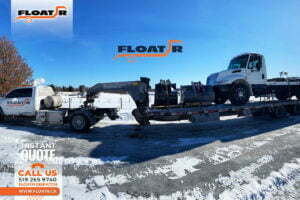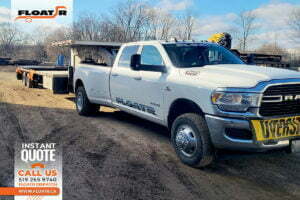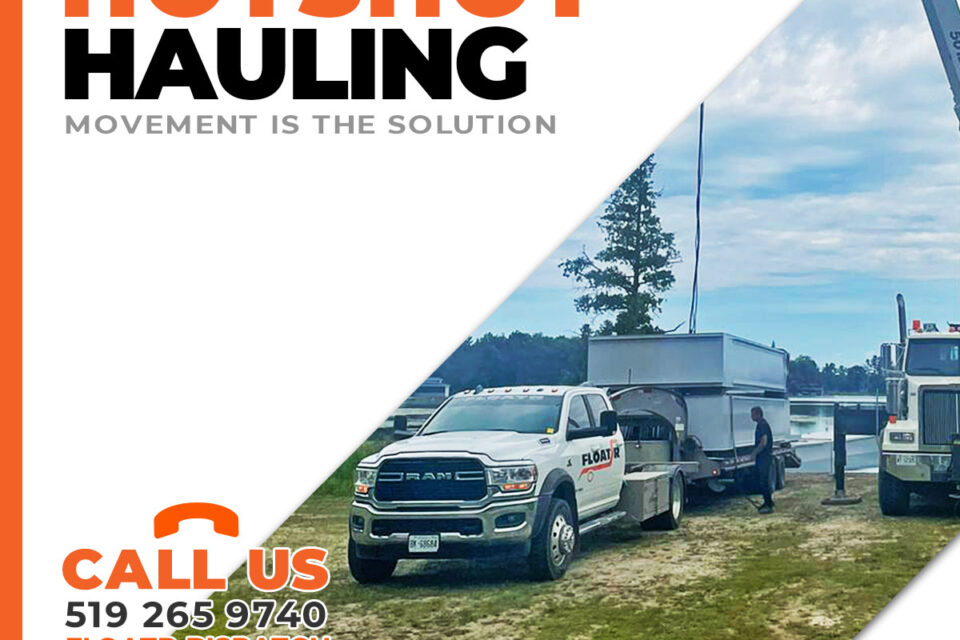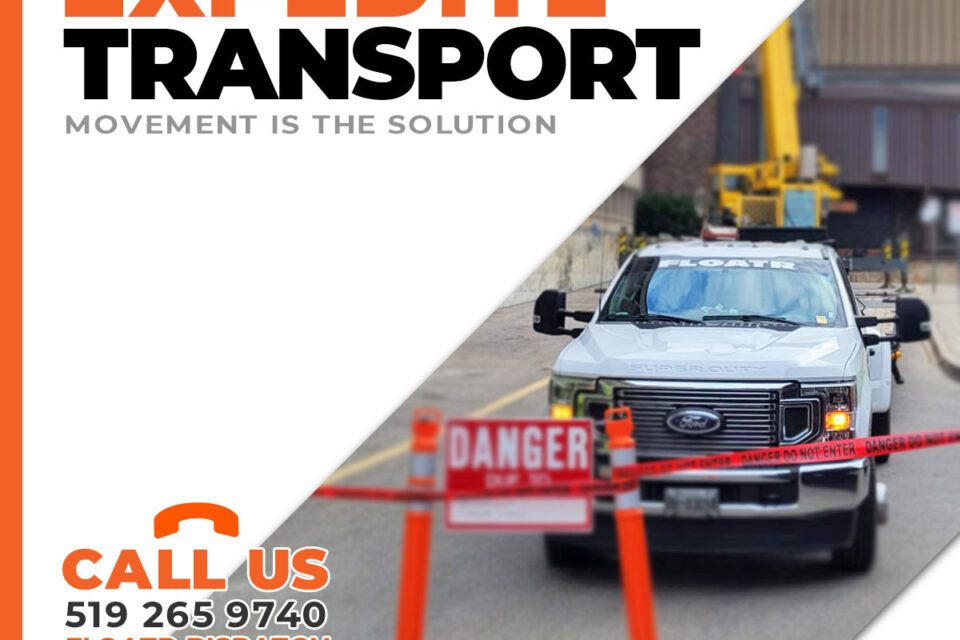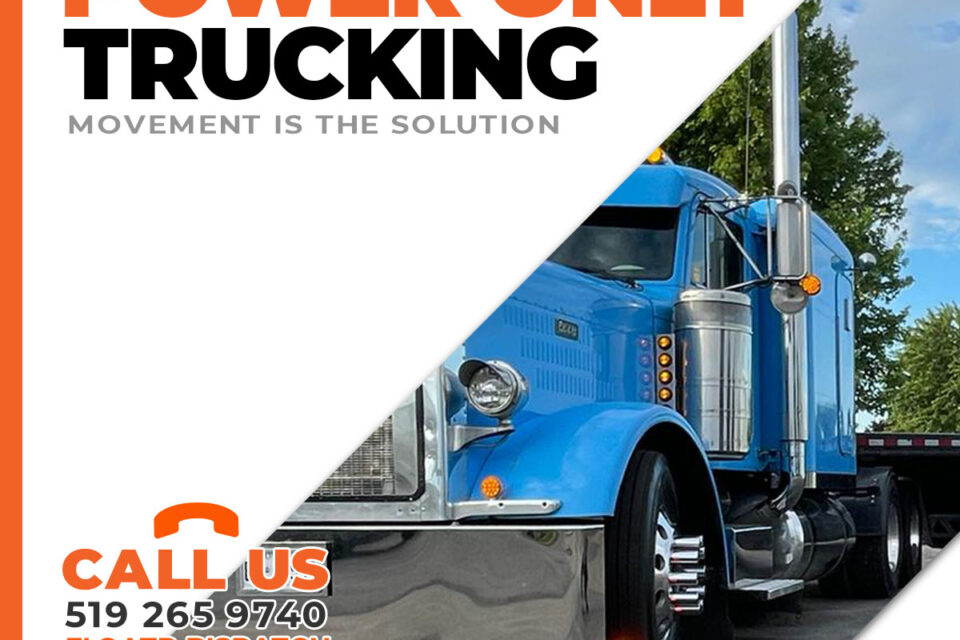Oversized Load
In road transport, an oversize load (or overweight load) is a load that exceeds the standard or ordinary legal size and/or weight limits for a truck to convey on a specified portion of road, highway, or other transport infrastructures, such as air freight or water freight.
FLOATR dispatch will help you determine what type of trailer and precautions are best for you when shipping a wide load.
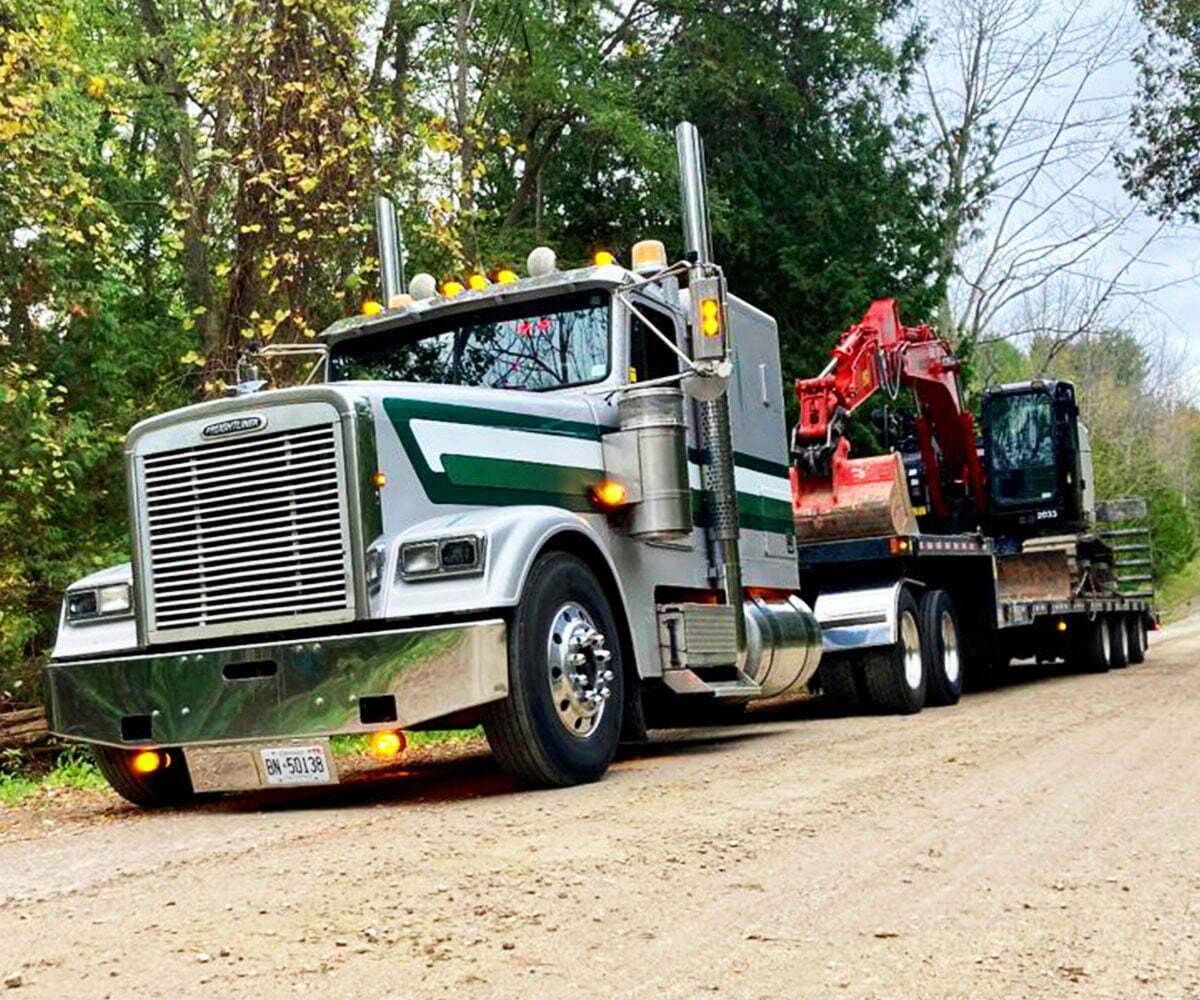
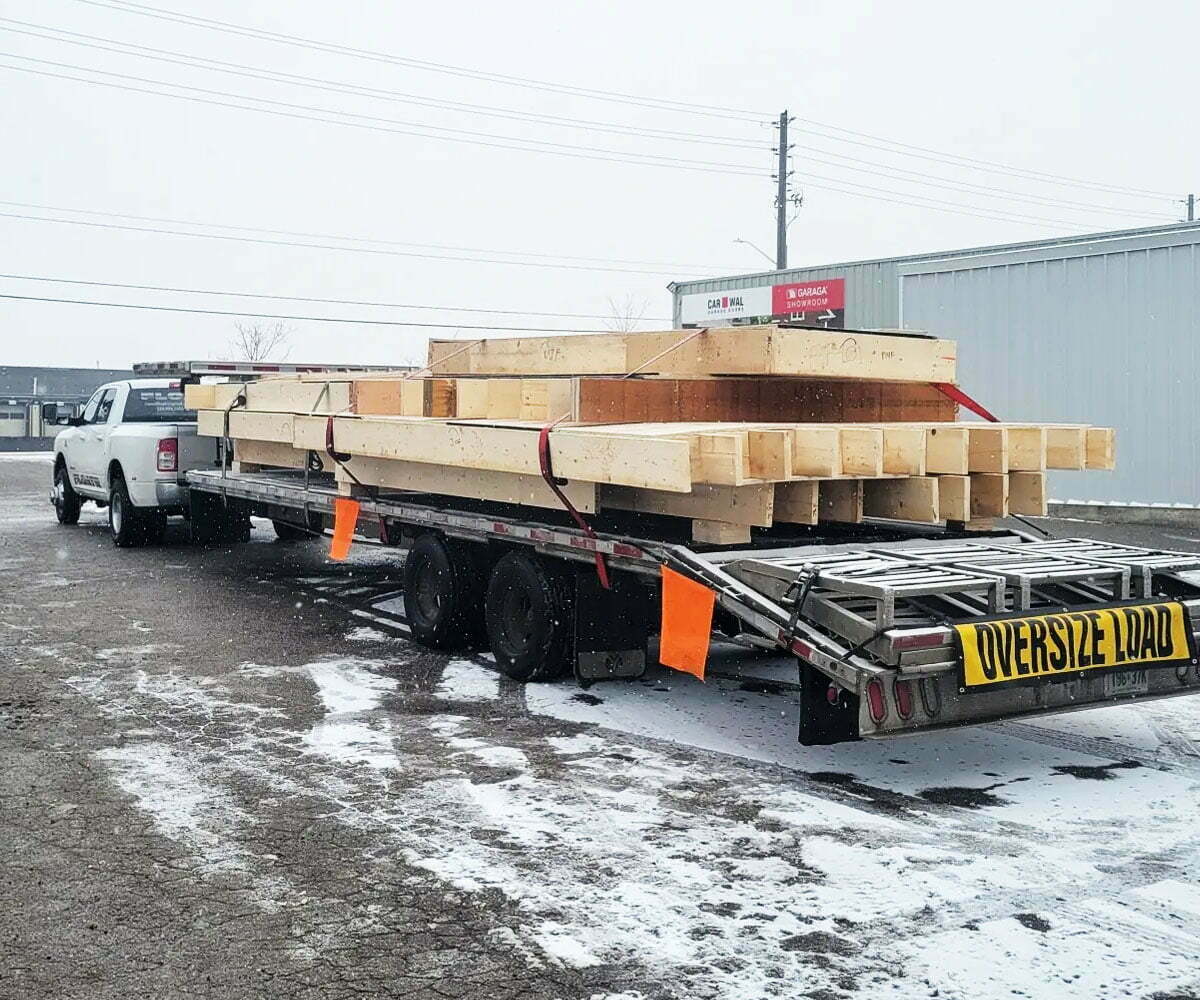
Common types of oversize loads we provide transport solutions for:
- Construction Equipment
- Industrial Materials
- Industrial Equipment
- Containers
- Windmill Propellers
- Mobile Homes
- Generators
- Mining Equipment
How much overhang can you have on a trailer in Ontario
The load must not be made up of articles loaded or mounted one behind the other that will create additional length, and any overhang to the rear must not exceed 4.65 m from the centre of the rearmost axle. Permit is issued for the movement of overweight however: The load must not be made up of more than one article.
Who is responsible for overweight truck in Ontario?
If a person violates the weight limit law for a tire, axle unit, axle group or the gross weight, under the HTA, is completely liable to a fine according to the amount of overweight. The schedule of fines is given in the table below. The fine is based on the actual overweight, rounded up to the nearest 100 kg, HTA s125.
What is the widest load without permit in Ontario?
Width of 3.70 m on two-lane highways and 3.85 m on multi-lane highways. length no greater than 25 m for combination vehicles and 12.50 m for single vehicles. height maximum 4.26 m.
Oversized Loads Provinces Restrictions
Canada places a variety of restrictions on heavy freight transportation. The specific limitations and special licenses required will vary between each province, so it is best to check with each provincial jurisdiction, or to contact an experienced hauling company like FLOATR directly.
What happens if your overweight at the scales?
A truck company can be fined $65 per pound for overweight loads up to 10,000 pounds. After 10,000 pounds overloaded, the fine increases to $125/pound. State laws vary throughout the country. Many states only charge a few pennies per pound when the load is overweight.
Can I tow 2 trailers at once in Ontario?
It is against the law to tow more than one trailer behind non-commercial vehicles.
Can I pull a boat behind my camper in Ontario?
When you’re towing a trailer and boat, or any other big rig, such as a fifth wheel camper, this counts as a separate vehicle and needs to be registered, paid for, and have its own license plate. After all, once you’ve got a trailer behind you it’s very difficult for people to see your automobile’s license plate.
Can you tow a boat behind a fifth wheel in Ontario?
If your tow vehicle is classed as a pick up truck and your Fifth Wheel RV weighs more than 4,600 kg and the gross combined is less than 11,000 kg you are a Class G. If your Fifth Wheel RV and your second trailer combined weighs more than 4,600 kg you are a Class A. YOU CAN NOT DOUBLE TOW ON A CLASS A Restricted!
With our years of experience, we have great knowledge of the regulations that are required when moving oversize loads. Ignoring the regulations will not only carry detrimental consequences and fines, to your oversized load, but it will also end up costing you more time and money than was initially budgeted.
Our specialized oversized load dispatch will assist you with all the updated information regarding Ontario over-dimensional transportation. Feel free to fill out the form from the left side of this page. One- off our dispatch collegues will contact you in no time.


